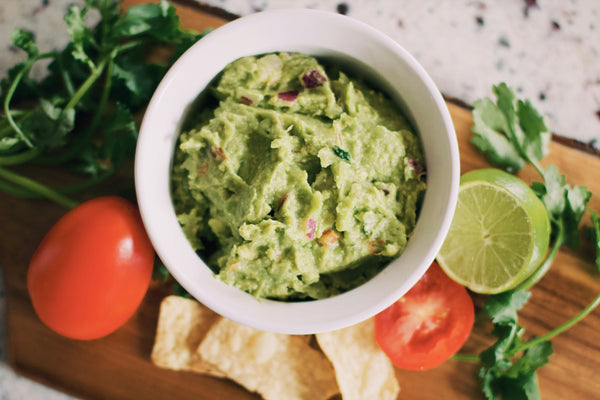Are Sugar-Free Sweeteners Safe for Toddlers? What Parents Should Know About Monk Fruit, Stevia & More
share this article
 With growing concerns about childhood sugar intake, many parents are looking for sugar-free alternatives to sweeten their toddler’s foods and drinks. Popular options include monk fruit, stevia, erythritol, and allulose, but are these sugar substitutes safe for younger kids?
With growing concerns about childhood sugar intake, many parents are looking for sugar-free alternatives to sweeten their toddler’s foods and drinks. Popular options include monk fruit, stevia, erythritol, and allulose, but are these sugar substitutes safe for younger kids?
Here’s what parents need to know about sugar-free sweeteners, their potential benefits, and concerns for toddlers.
Why Are Parents Looking for Sugar-Free Alternatives?
Excess sugar intake in toddlers can contribute to:
🚨 Energy crashes & mood swings
🚨 Increased risk of cavities
🚨 Gut imbalances & digestive issues
🚨 Long-term metabolic concerns (insulin resistance, obesity)
The American Heart Association (AHA) recommends avoiding added sugars entirely for toddlers under age 2, and limiting them to no more than 25g (6 teaspoons) per day for kids ages 2–5.
This has led parents to explore natural and artificial sweeteners as alternatives - but not all sugar substitutes are equal.
Are Sugar-Free Sweeteners Safe for Toddlers?
While some sugar substitutes are generally recognized as safe (GRAS) by the FDA, research on their long-term effects in younger kids is limited.
Here’s a breakdown of the most common sugar-free sweeteners and whether they’re safe for toddlers and kids.
1. Monk Fruit Sweetener (Safe to Use in Moderation)
✅ Natural sweetener derived from monk fruit
✅ Zero calories, does not spike blood sugar
✅ Contains antioxidants (mogrosides), which have anti-inflammatory properties
Safe for Toddlers and Kids? Yes, in small amounts. Monk fruit is naturally derived and has no known toxicity. However, many monk fruit products contain fillers like erythritol or maltodextrin, which may cause digestive issues. Look for pure monk fruit extract.
✔ Best for: Baking, homemade snacks, and sweetening drinks.
🚨 Watch out for: Monk fruit blends with artificial additives.
2. Stevia (Generally Safe, But Limited Research in Toddlers)
✅ Plant-derived sweetener from the stevia leaf
✅ Zero calories & does not impact blood sugar
✅ Much sweeter than sugar—tiny amounts needed
Safe for Toddlers and Kids? Likely safe in small amounts, but research on long-term effects in younger kids is lacking. Some studies suggest stevia may affect gut bacteria and taste preference development.
✔ Best for: Occasional use in recipes.
🚨 Watch out for: Blends with erythritol or artificial sweeteners.
3. Erythritol (Not Recommended for Toddlers)
✅ Low-calorie sugar alcohol, often used in keto-friendly foods
✅ Does not raise blood sugar levels
✅ Found naturally in some fruits & fermented foods
Safe for Toddlers and Kids? Not recommended. Erythritol is a sugar alcohol that can cause bloating, gas, and diarrhea in toddlers and kids due to its incomplete digestion in the gut.
❌ Avoid in: Sugar-free candies, drinks, and baked goods for toddlers.
4. Allulose (Emerging Research, Use with Caution)
✅ Naturally found in small amounts in figs & raisins
✅ Low-calorie & does not spike blood sugar
✅ Tastes very similar to regular sugar
Safe for Toddlers and Kids? Limited research in toddlers and kids. While allulose is generally well-tolerated, excess amounts may cause diarrhea. More studies are needed to determine its long-term safety in toddlers.
✔ Best for: Occasional use in small amounts.
🚨 Watch out for: High intake, which may lead to stomach upset.
5. Aspartame, Sucralose & Other Artificial Sweeteners (Avoid for Toddlers)
❌ Aspartame (Equal), Sucralose (Splenda), Saccharin (Sweet’N Low)
❌ Found in diet sodas, sugar-free desserts, and processed snacks
❌ Linked to potential gut microbiome changes and taste preference shifts
Safe for Toddlers and Kids? Not recommended. While the FDA considers them safe, artificial sweeteners may alter gut bacteria and increase cravings for sweet foods, which can impact eating habits long-term.
🚨 Avoid in: Diet drinks, sugar-free candies, and artificially sweetened yogurts or snacks.
Best Natural Sweetener Options for Toddlers
Instead of sugar-free sweeteners, consider natural whole-food alternatives that offer fiber and nutrients:
- Mashed bananas – Naturally sweet & great for baking.
- Unsweetened applesauce – A healthy swap for sugar in recipes.
- Medjool dates – Naturally rich in fiber & minerals.
-
Pure maple syrup – A small amount is okay for toddlers 2+ years
Summary
Best options in moderation: Monk fruit & stevia (pure, no additives).
Use with caution: Allulose (limited research, may cause digestive issues).
Avoid for toddlers: Erythritol, artificial sweeteners (aspartame, sucralose, saccharin).
Healthier alternatives: Whole fruits, mashed bananas, applesauce, and dates.
When in doubt, focus on whole foods and minimally processed natural sweeteners for toddlers to support their gut health, energy levels, and long-term eating habits.




















